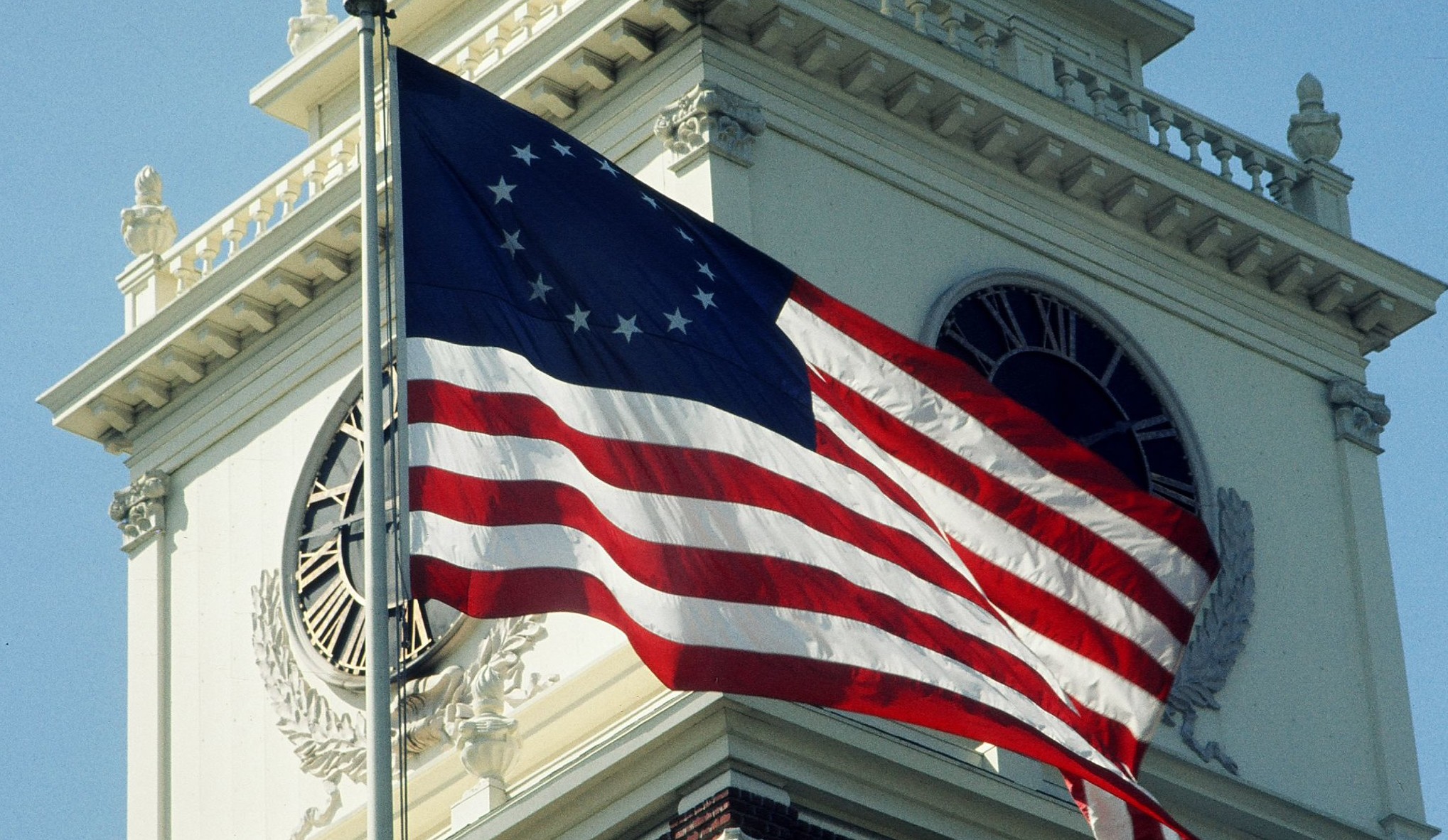As Election Day approaches, it’s easy to despair that we live in an era of unprecedented political polarization. But take heart: this is nothing new. As recounted in Ron Chernow’s biography of the first president, Benjamin Franklin Bache, publisher of the Philadelphia Aurora and grandson of the more famous Franklin, challenged sitting president George Washington “to point out one single act” that proved Washington had supported American independence. The first sex scandal was probably Thomas Jefferson’s relationship with slave Sally Hemings, which was widely reported at the time. And lest we forget, this country became so polarized in the 1860s that over 600,000 men died as a result of the Civil War.
The founders fretted about political parties, but parties sprung almost as soon as the war for independence ended. James Madison, writing in the Federalist Papers, acknowledged that republics have a habit of lapsing into “party rage.” To prevent party divisions from fracturing the country, Madison argued for a large country under a federalist system, which would include so many citizens and factions that domination by one group would be impossible. Madison might not have foreseen the modern two-party system, but even in Madison’s time two political factions dominated politics.
The habit of disparaging Washington, D.C. may be a modern political reflex, but politics has always been considered a dirty business. When George Washington was first elected to Virginia’s legislature, he declined to campaign personally. Washington’s letters are filled with anxiety about appearing too ambitious and hungry for office. In eighteenth-century America, there was a sense that politics was beneath the elite class. But concurrently, many believed elites were the only people fit to govern. Politicians were expected to serve the “common good,” and well-off citizens were in the best position to put their personal concerns aside and work for the best interest of all.
Commentators often point to the fragmentation of the press, or the entrenchment of the two-party system, as reasons for the modern partisan climate – with good cause. But the ideal of the common good has faded from serious public discourse. Today we take parties and interest groups for granted. We often embrace these factions when we agree of them, or when their interests align with ours. This is probably a more rational view of politics. And true interests groups do exist, and they need advocates. Relying on benevolent, disinterested elites seems at best naive, and at worst undemocratic.
What sets today apart from Washington’s time is the fact that business, politics, and interest groups have become nationalized (and globalized). Think about the businesses you deal with on a daily basis: gas station, grocery store, bank, restaurant. How many of those businesses were local twenty or thirty years ago, and how many are now global corporations? These corporations are able to exert great pressure on the government, especially in today’s era of looser campaign finance laws.
The libertarian solution is to restrict the oversight and regulatory functions of the federal government. This weaker federal government would have less authority, so there would be less incentive for corporations and interest groups to pour money into lobbying in an attempt to influence legislation and rulemaking. Returning more power to the states has the appeal of making politicians less insulated from their constituents, which should increase accountability. This is a commonsense and appealing argument, and Madison would probably approve. As Paul L. Posner notes, however, corporations often lobby for expansion of federal power, because federal regulations impose uniformity and prevent the headache of having to comply with fifty different state laws. Our trajectory of political and economic nationalization seems unstoppable, and the only way to compete in a globalized world.
I would argue that there are two solutions to polarization: structurally changing the political process, or fostering the ideal of the common good. The first could be achieved by instituting changes in how we vote or how we fund campaigns, with the hopes of creating third parties and lessening political entrenchment. These changes would be extremely difficult to implement, and might require a Constitutional amendment.
Fostering the common good might seem hopelessly idealistic. But if politics is national, we in Rhode Island are already relying on senators from Iowa to consider the best interests of the country on each vote they take. Issues like free trade, national defense, and climate change affect us all, and we’re counting on Congress to address these subjects.
When galvanized by a tragedy or important event, Americans are quick to shed their petty politics and interests. In the 1960s, trust in government ran as high as 75%. One way to promote the idea of the common good would be through a system of mandatory public service, in the form of two years of military or civil service. This has been proposed, although the proposal hasn’t been taken seriously, and it’s hard to see the Tea Party lining up behind this. Maybe a simpler solution would be to take steps to encourage more diversity in Congress. Congress is dominated by lawyers and businesspeople – two occupations that are focused on defending interests and creating advantage. A different perspective could do that thing all politicians promise: change the culture of Washington.
Whatever happens in the election, partisans and those skeptical of politics should be optimistic. America has persevered through numerous wars at home and abroad, the stain of slavery, political corruption, and countless inept politicians. The founders were wary of government, but they also believed in the promise of a republic. It’s important for frustrated citizens not to loose all hope, because once we remove ourselves from the civic process we give up all ability to create change.
